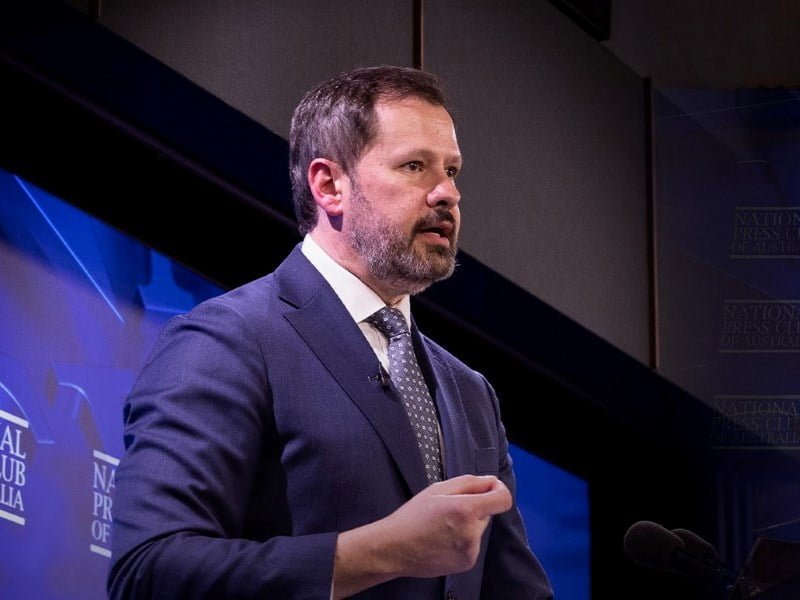President Joe Biden’s executive order on AI regulation announced on Monday in the US fairly gazumped the Global AI Safety Summit being hosted by British Prime Minister Rishi Sunak on Wednesday and Thursday.
But it also put a gigantic international spotlight on the issue, as perhaps only a US president can.
The US has staked out its position. And now international leaders and their representatives have gathered at the famed Bletchley Park country estate – home to the Enigma code breakers in the 1940s – to find common ground for the regulation of artificial intelligence.
Representing the Australian government is Deputy Prime Minister Richard Marles, together with the Minister for Industry and Science Ed Husic.
Australia’s approach to regulating AI remains a work in progress. Mr Husic issued a discussion paper on Safe and Responsible AI in Australia in June, and a subsequent consultation attracted more than 500 submissions – the majority from individuals.
Mr Husic is planning to deliver an update on the government’s thinking on AI regulation in the next several weeks, but the final position on AI policy is now unlikely before early 2024.
Rishi Sunak, meanwhile, says his ambition for the summit is to build a “shared global understanding” of the risks posed by ‘frontier AI’ – the powerful, highly capable general AI technology.
He wants the international community to be clear-eyed about articulating and managing AI risk, while enabling the innovation opportunities of the technology.

In an interview with InnovationAus.com shortly before leaving for the UK on Monday, Mr Husic said the summit was an opportunity to swap notes with senior political leaders from all over the world, and to better understand the different regulatory approaches each has so far taken in relation to AI.
“It’s pretty rare to have gatherings like this, especially when it’s focused on technology,” he said.
“We’ve seen it as a good opportunity to join up with like-minded countries thinking about frontier AI or generative AI, and how we should shape the regulatory frameworks to deal with the more high-risk challenges.”
“Australia has been keen to swap notes and to see what pathways emerge from the discussions on regulatory directions.”
He said his general approach to these regulatory issues “has been to harmonise where we can globally, and to localise where we have to.”
Mr Husic will provide an update to the summit on Wednesday of Australia’s progress toward a regulatory regime, ahead of the leaders agenda on Thursday (where Richard Marles will represent for Prime Minister Anthony Albanese).
Different countries bring different historical paths to regulatory issues, he said. The Bletchley Park summit was about understanding how different countries are approaching AI and where Australia can work together with them.
The US and the European Union are famously different in their approach to regulating data and information technology. This is being borne out on AI also, but for all the differences, there is a lot of common ground.
“From our point of view, we want to be able to recognise [these approaches] because technology crosses borders and is used in different ways. We want to be able to work with like-minded countries on it.
“And we appreciate that it will be a challenge, but it’s an opportunity to start thinking through ways in which countries might be able to work together.”
And Mr Husic said there was also a lot to learn from the early regulation of other industries – like the regulation of aviation, or nuclear, or pharmaceuticals.
“There has always been this approach that says ‘yes, this is a disruptive technology’ and that we need to be able to nurture and support industry development, while also acknowledging that there might be areas where the technology goes off the rails.
“And so we need a genuine response to that. This [summit] gives a platform to work through some of those issues.”
Do you know more? Contact James Riley via Email.

